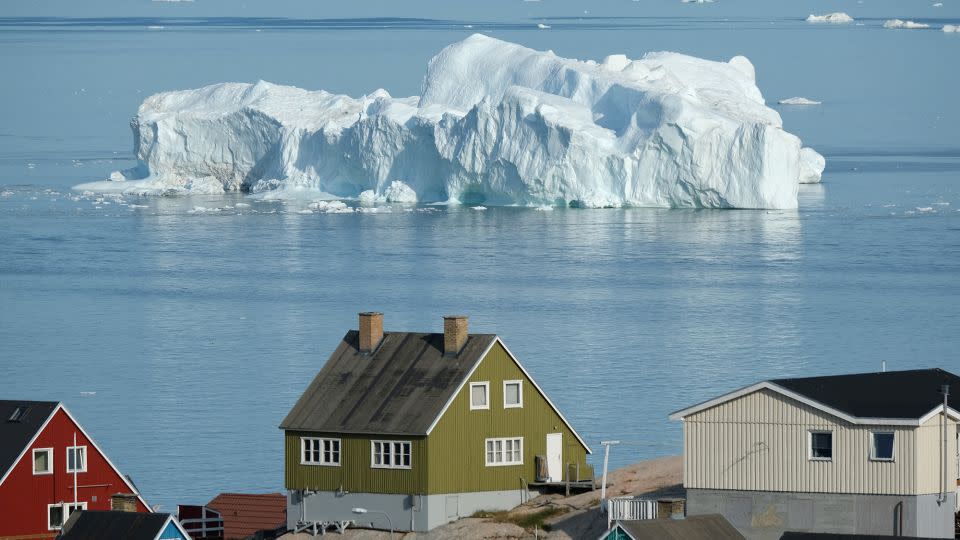Editor’s Note: Editor’s Note: Bill McGuire is Professor emeritus of geophysical & climate hazards at University College London and author of “Hothouse Earth: An Inhabitant’s Guide.” The opinions expressed in this commentary are his own. Read more CNN opinion here.
Are you afraid of climate change? Are you concerned about the kind of world we are bequeathing to our children and grandchildren? In the words of science writer and author of “The Uninhabitable Earth” David Wallace-Wells, “No matter how well informed you are, you’re definitely not scared enough.”
I would put it even stronger.
If the fracturing of our stable climate doesn’t scare you, you don’t fully understand it. The fact is, as far as we know, and in the natural course of events, our world – in its entire history – has never warmed as fast as it is now. Greenhouse gas levels in the atmosphere were not that high either.
Think about that for a moment. We are experiencing, in our lifetime, a heat event that is probably unique in the last 4.6 billion years.
While those of us who work in the field of climate science know the real picture, and understand the implications for our lives, most others do not. And this is a problem – a big one. After all, we cannot act effectively to tackle a crisis unless we know its depth and breadth.
What is happening to our world scares me, but if I shout the brutal, unvarnished truth from the rooftops, will this inspire you and others to fight for the planet and the future of your children? Or will it leave you frozen like a rabbit in headlights, sure that all is lost? It is a critical question.
With politicians and corporations unable or unwilling to act quickly enough to curb emissions as the science dictates, the only thing left for us as climate scientists is to try to motivate the public to try to make – through the ballot box and consumer choices – the massive changes needed to curb global warming.
But would telling it like it is do the trick, or would the burden of the truth be too much to bear?
A major psychological study, published by the scientific journal Lancet Planetary Health in 2021, found that most people aged 16-25 in 10 countries around the globe were moderately or extremely concerned about climate change, but More than half felt overwhelmed and powerless to act. It would be reasonable to argue that, on this basis, painting an even worse picture would not help. But if that’s the case, does it mean we shouldn’t provide people with the full facts if they’re too alarming? Definitely not.
In fact, this is not a question of scaring people or not, but of informing them. As a climate scientist, it is my duty to tell you about what is happening to our world, whether it inspires fear or not.

Failure to do this will leave the public unaware of the scale of the climate emergency, inhibiting participation and action.
This is already becoming a problem, with many commentators on the right of the political spectrum, along with some climate scientists, disparaging as “bad guys” anyone who shows the worst results of global warming. Such “percolation” of climate is taking the place of greater denial and may be a motivator of inertia more than fear, because it plays up the enormity of the problem — and as an inevitable consequence, the urgency of action.
The truth is that people can be afraid if they know that there is still hope and that they can do something to make things better, or at least stop it from getting worse.
A 2022 study by researchers from the University of Bath in the United Kingdom found that frightening images of wildfires and other climate-related disasters around the world were particularly effective in instilling climate anxiety, defined by the Association American psychology as the chronic fear of the environment. Rather than being a cause for inaction, however, the study showed that this could be a motivating force that encouraged the sample of UK adults to take action that helped reduce emissions.
Crucially, the authors of the study noted that the reality of climate change needs to be conveyed without inciting a sense of hopelessness – and this is the key.
One of the ways to do this is to encourage collective action. Many people have told me that they feel isolated or that as individuals, they don’t think they can make a meaningful difference.
My answer is always to join a group of like-minded people and work with them to drive institutional and systemic change. In each case, this had a galvanizing effect, replacing hope with hope; inertia with action.
The bottom line is that there are many scary or worrying things in life, from going to the dentist to noticing a possible sign of cancer, but ignoring them usually leads to something much worse.
Climate change is no different. Everyone has the right to know the facts – scary or not – to provide the opportunity to act based on the reality of what we are doing to our planet, and not some sanitized version.
Rather than causing inaction, I believe this could be transformative.
For more CNN news and newsletters create an account at CNN.com